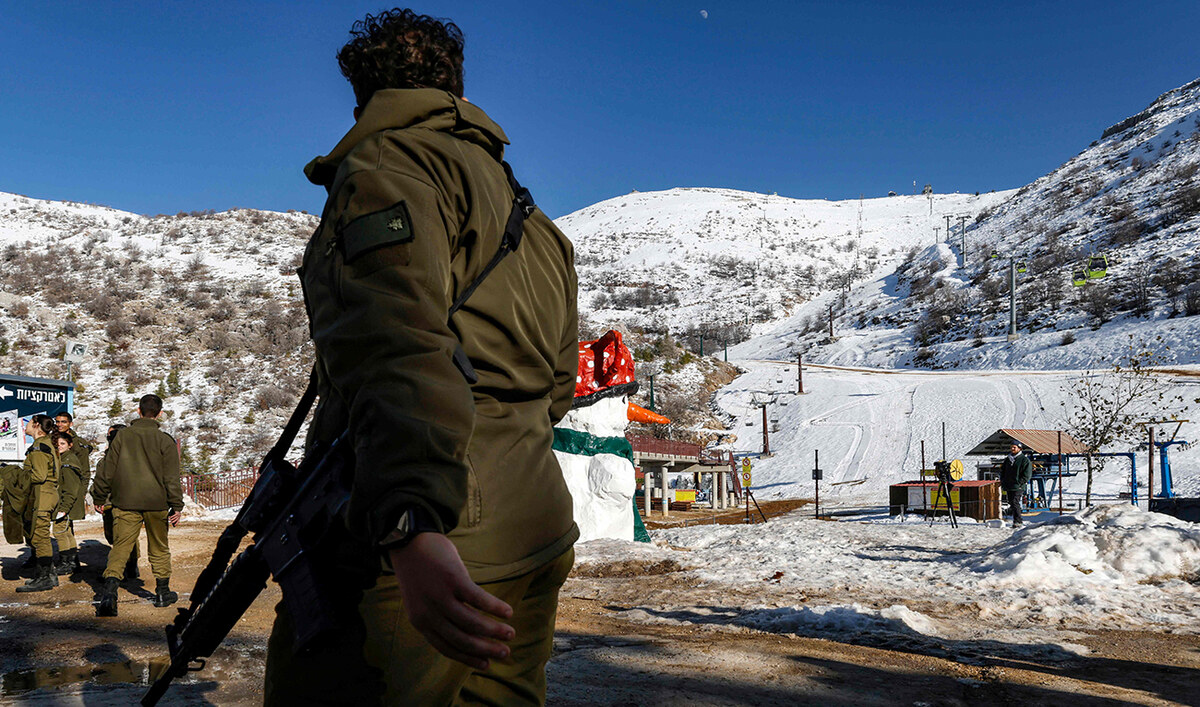ISLAMABAD: Pakistan’s top diplomat at the United Nations on Wednesday condemned Israel’s occupation of the Golan Heights and called for the restoration of Syrian territorial integrity alongside the establishment of an inclusive government structure.
Ambassador Munir Akram delivered his remarks during a Security Council briefing on Syria’s political and humanitarian situation. Pakistan, which began its two-year term as a non-permanent council member this month, has pledged to uphold the UN Charter and promote just resolutions to global conflicts.
The Security Council briefing follows the downfall of the former Syrian President Bashar Assad’s regime after a swift offensive was launched by opposition forces led by the religio-political group Hay’at Tahrir Al-Sham (HTS).
The rebels quickly seized key cities, including Aleppo, Hama, Homs and Damascus, forcing Assad to flee to Russia, where he was granted asylum. While Damascus airport has resumed international flights to facilitate exiles’ return, Syria remains burdened by significant economic, political and security challenges.
“Syria’s sovereignty and territorial integrity must be restored,” the Pakistani diplomat told the council. “Israel’s occupation of the Syrian Golan Heights is illegal and ‘null and void’ as declared by Security Council ... The Council must demand Israel’s full withdrawal.”

Israeli soldiers gather at the Hermon ski resort, bordering Syria and Lebanon, during a media tour organized by the spokesman of the Israeli army, in the Israeli-annexed Golan Heights on January 8, 2025. (AFP)
Calling Syria a “fraternal country,” Akram welcomed positive statements from the interim administration but stressed the need for their practical implementation.
“Syria is at an important juncture in its history,” he noted. “The recent political developments offer the opportunity to restore normalcy, stability and peace in Syria. Yet this will depend on ensuring a peaceful transition to a new governance structure which is inclusive and stable and ensures Syria’s unity and territorial integrity.”
He also urged vigilance against the “danger of terrorism” emanating from Syria, citing concerns over the presence of foreign fighters and the potential resurgence of Al-Qaeda and Daesh.
“The antecedents of some of the groups, and the reported presence of foreign fighters, dictates caution,” Akram said.
Emphasizing the need to address Syria’s dire humanitarian crisis, thee Pakistani diplomat highlighted that over 70 percent of the population requires aid, with more than one million displaced in recent weeks.
He called for full funding of the UN Humanitarian Response Plan and support for the safe repatriation of Syrian refugees, including those in Turkiye.
He further appealed for international assistance in Syria’s reconstruction, urging collaboration with the new administration to rebuild institutions and stabilize the country.
“The role of the United Nations – especially the Security Council and the Secretary-General – will be indispensable to ensure effective action on all aspects of the challenges confronting Syria,” Akram said.















